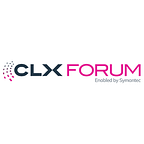How Have Changes in IT Affected the CIO Role?
The speed of change in IT is faster than ever. New service models for software and data management need CIOs who can keep things fast, simple, and relevant for both companies and consumers.
The same, only faster
The fundamentals of the CIO role haven’t changed. CIOs are still responsible for ensuring systems and services are up and running, and they are often the key after-hours point of contact if something goes wrong. In recent years, however, CIOs have also taken on a strategic role, helping to set and lead the technology strategy, and manage the technology department’s relationship with the wider business.
CIOs still need to understand the broader business requirements, and know which ones to prioritize through technology solutions. But increasingly they are called upon to exploit technologies that are reaching the tipping point (cloud computing, big data analytics, etc.) while also having to watch for emerging technologies that will impact the business in the future (artificial intelligence, machine learning, etc.)
Keeping pace with the tech revolution
The past five years have seen a revolution in the way that companies deal with their technology and information needs. This revolution continues — and CIOs are in the middle of it all.
Only a few years ago, companies relied on their own digital infrastructure. They had their own servers and mainframes. Programs were installed on desktop PCs. But no longer! The workforce, and the world, have gone mobile.
The rise of Infrastructure as a Service (IaaS) means enterprises have outsourced their hardware, storage, servers, and data center space to third-party vendors via cloud computing. All of it is accessed remotely. Similarly, Software as a Service (SaaS) means employees access applications remotely. Programs are more easily kept up-to-date with upgrades and security patches, improving digital security.
IaaS and SaaS present huge time and cost savings, as companies don’t have to build their own solutions from scratch. Instead, they rely on vendor partners who have the expertise and resources to develop customizable solutions for business challenges, and these can be purchased on-demand through the cloud. CIOs need to be up-to-date on these solutions, developing partnerships with vendors and startups, and anticipating which opportunities will advance the company’s goals and mission, while also saving money.
The CIO’s new normal
Fast, simple, and relevant is the new normal for the CIO. Changes in technology have created new expectations among employees, partners, and customers. By 2020, millions more workers will be working remotely, driving productivity and efficiency. That same year, it’s estimated that there will be four internet-connected devices for every person on the planet. This includes not just smartphones, but the growing number of IoT devices. Think of all the data they will generate! CIOs will need to be prepared to manage that data, and have a plan to extract value from it for their enterprise.
The fluidity and real-time nature of this data presents tremendous opportunities for business, giving it an in-the-moment view of how products and campaigns are received, and how the business is doing. CIOs can lead the movement to expand data collection and create the analytics that drive the digital transformation of their companies. But this situation also presents unique and fast-moving challenges for CIOs, who are charged with protecting and managing sensitive data as it moves between devices and servers.
The pace of change won’t slow anytime soon, and the CIO role will continue to develop and change along with technology. These trends will also impact other sectors and other roles, again with the speed of change only increasing. Soon most, if not all, job roles will involve a tech element. Companies, and their CIOs, must be aware. They must be ready, or they risk being left behind.
Download the CLX Forum book, Canadian Cybersecurity 2018: An Anthology of CIO/CISO Enterprise-Level Perspectives: http://www.clxforum.org/
